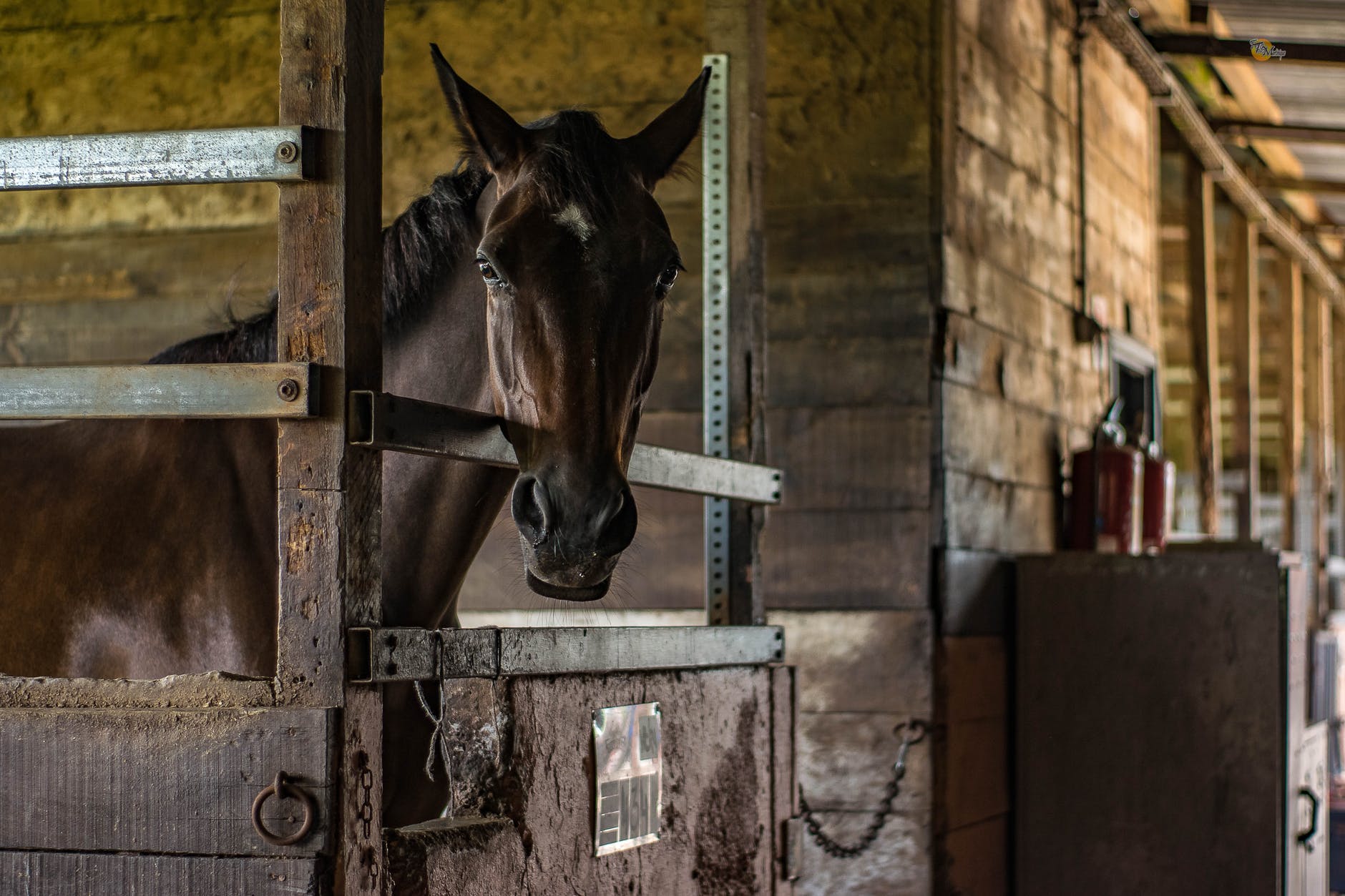The Fate of a Sale Horse
Have you ever bought a horse from a sales barn? Sometimes going to the local sales pavilion is fine and sometimes it brings you to tears.
The distraught horses are mingling. Some, for the first time, on their own, or having their foals yanked away from them. Others seem to be listless and heart broken.
And
Others again, frightful and defensive.
A few years ago my hand shot up waving a number scrawled on a cardboard square buying what I thought was a good deal.
A medium, dappled grey pony. She had one hind sock and she was gorgeous. At 2 years old what could go wrong, I thought. Unbroken, healthy and sound she would be a perfect project to test my mettle over the spring and summer. Then an easy keeper for the winter.
I had a plan. Keep her, start her undersaddle the following spring and have a student campaign her in some easy flat classes with the eye for resale.
What’s Your Purpose?
Having a plan for your new purchase is important. Maybe you are looking for your next competition horse.
But,
Maybe it’s important to you to allow an aged horse a pleasant retirement.
Whatever your focus or your purpose is, have a plan. The horse you purchase deserves that much from you.
Why do horses come to sales barns?
Keeping a horse is expensive.
No one is denying that.
So, when people are on hard times their frivolities are the first to go. The unnecessary expenditures are cut at the knees.
Horses are representative of that slice of the spending dollar.
If the priority is to “put food on the table” or get Queenie a new pedicure, you can bet that hard earned dollar that Queenie won’t be getting her feet trimmed any time soon.
And, my friends, that is the first step on the road to the inside of a horse sales barn.
There are very few times when perusing horses you will find one with hooves that have been properly taken care of.
I say “properly” only because there are some who nip their horse’s feet to the quick the few days prior to the sale. To make them “look nice”. This often leads horses to tippy-toe around the often gravelled sales yard on tender hooves.
Add farrier costs to the grocery list of expenses, hay, board, veterinary care. Not to mention your everyday living expenses, mileage, rent/mortgage and not to put too fine a point on it food you can sum up that having a horse may be the first thing to be struck off the list when money gets tight.
On the other side of things, with people who are insulated from these sorts of dilemmas. Their fancy horses with life long agreement to three squares a day and a yearly medical check up are horrified at the thought of selling their horse at a sales auction.
Who Buys?
Let’s be clear here. I’m not talking about those places where there are reserved bids or the places where you will be bidding against a Prince of an oil producing country. I’m talking about trying to outbid the meat buyers for horses that are serviceably sound and would make someone a “nice horse”.
These are great places for horse buyers to find a new companion. Caveat emptor. With cash in hand you “pay your money and you take your chances” when you are at an auction.
Different types of people purchase at auctions.
Riding school owners are looking for their next steady school pony.
People with a competition in mind are looking for that diamond in the rough to bring along to their next championship.
There are others who know what they are looking for as a resale project.
Or
People who would like to give a horse a home to prevent them from going to a meat buyer.
Either way, each person has their own reason for purchasing a horse.
And
They do have a reason.
What can you expect?
Most people can look past the recent grooming job, braids (on occasion I have seen this) and oiled hooves to see what is really at the core of the horse. No amount of grooming and hoof oil can hide a splint, curb or spavin.
And if you don’t know what any of those are then you should bring a seasoned horse person with you to suss things out. Having a second set of eyes with you will help direct you to the horse that you
Before you register for an auction get an idea what the expectation is for returns. If the seller is not completely honest with you or the description is not a fair picture of the horse what are the return policies. For example, what if the seller tells you the horse is not a cribber (because it looks like he had a crib collar on) but then you get him home and you find him sucking wind, what recourse do you have. Get that straightened out right from the get go.
You can also take a knowledgeable friend with you. This will help keep you on track if you are looking to purchase from an auction.
SOLD!
And the sale of the horse goes to the highest bidder. This is what the auction is all about. Trying to get a decent horse for a good price. The down side of this is that the auctioneer is there to get you to bid.
Often people get caught up in the auction fever and over bid on the amount that they had set. It’s hard not to just up your price a bit just to win the bid. I have found that most people have an even number in their mind that they max out at. For example, I may have a maximum planned in my head of one thousand dollars. But what if I am in at nine hundred and fifty and the other person who is bidding gets to $1000 first? Do you drop the extra dough to get the purchase that you wanted? Or do you let it go?
This is something you answer for yourself. If you have decided this is the horse for you and you really want the horse then your next decision is to establish your price point.
Keeping in mind the auctioneer will be hovering over you baiting you to bid more than you really want to.
My plan for that grey pony I bought at auction soon ran off the rails when I woke up one morning mid-summer and found her nursing a handsome bay colt. So even if you have a plan for your new auction purchase your plans may change drastically.
Sign up for the newsletter. People tell me they have gotten valuable information from it. Loads of tips and helpful exercises.
 Try these three powerful exercises to get strengthen your position.
Try these three powerful exercises to get strengthen your position.
